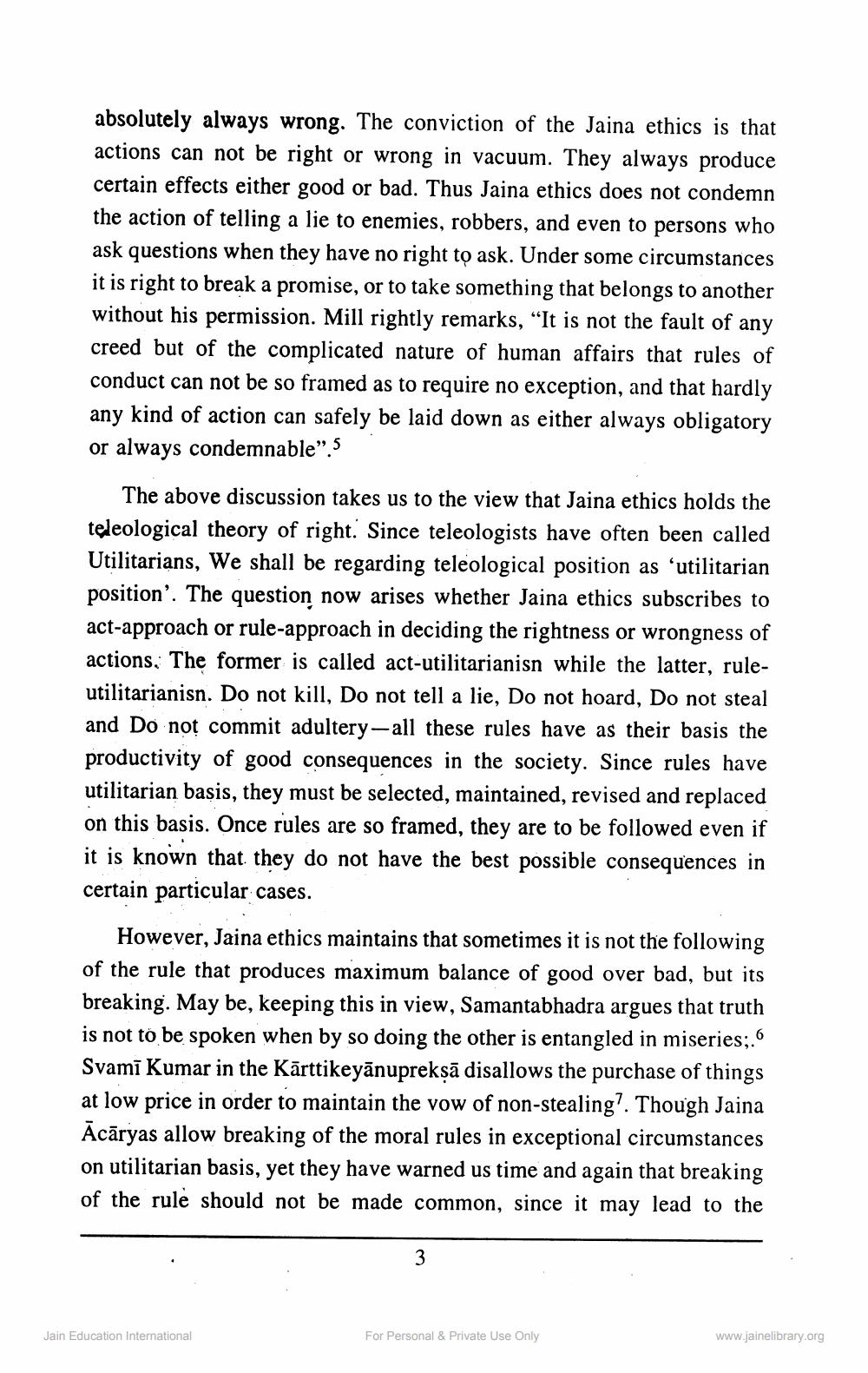Book Title: Right and the Good in Jaina Ethics Author(s): Kamalchand Sogani Publisher: ZZZ Unknown View full book textPage 8
________________ absolutely always wrong. The conviction of the Jaina ethics is that actions can not be right or wrong in vacuum. They always produce certain effects either good or bad. Thus Jaina ethics does not condemn the action of telling a lie to enemies, robbers, and even to persons who ask questions when they have no right to ask. Under some circumstances it is right to break a promise, or to take something that belongs to another without his permission. Mill rightly remarks, “It is not the fault of any creed but of the complicated nature of human affairs that rules of conduct can not be so framed as to require no exception, and that hardly any kind of action can safely be laid down as either always obligatory or always condemnable”.S The above discussion takes us to the view that Jaina ethics holds the teleological theory of right. Since teleologists have often been called Utilitarians, We shall be regarding teleological position as ‘utilitarian position’. The question now arises whether Jaina ethics subscribes to act-approach or rule-approach in deciding the rightness or wrongness of actions. The former is called act-utilitarianisn while the latter, ruleutilitarianisn. Do not kill, Do not tell a lie, Do not hoard, Do not steal and Do not commit adultery-all these rules have as their basis the productivity of good consequences in the society. Since rules have utilitarian basis, they must be selected, maintained, revised and replaced on this basis. Once rules are so framed, they are to be followed even if it is known that they do not have the best possible consequences in certain particular cases. However, Jaina ethics maintains that sometimes it is not the following of the rule that produces maximum balance of good over bad, but its breaking. May be, keeping this in view, Samantabhadra argues that truth is not to be spoken when by so doing the other is entangled in miseries;.6 Svamī Kumar in the Kārttikeyānupreksā disallows the purchase of things at low price in order to maintain the vow of non-stealing?. Though Jaina Ācāryas allow breaking of the moral rules in exceptional circumstances on utilitarian basis, yet they have warned us time and again that breaking of the rule should not be made common, since it may lead to the Jain Education International For Personal & Private Use Only www.jainelibrary.orgPage Navigation
1 ... 6 7 8 9 10 11 12 13 14 15 16 17 18 19 20 21 22
